
“Reformists“ have a tough task in convincing the Iranian people
The editorial of Arman Melli explains why Iranian “reformists“ have a tough time ahead in convincing Iranians to participate in the next election and to vote for them.
Currently, Iranian “fundamentalists” are in a better condition than the “reformists“ with regard to the upcoming election. This is because they have a fixed base, consisting of roughly 17 million people who voted for Ebrahim Raisi in the last presidential election. This number might even go up, as some of those who voted for Rouhani might join the “fundamentalists”.
However, this is not true for the “reformists”. A large part of the 24 million people who voted for Rouhani have doubts about the performance of his government and the “reformist” Omid faction in parliament. Therefore, it is not far from the truth to say that parts of the “reformists’” base have lost interest in participating in the upcoming election. If so, it can be predicted that the participation of the “reformists’” base in this election will not be the same as the last one.
The “reformists’” talk of convincing the people to go to the ballot boxes and the former President Khatami recently said that the Iranian people should vote to save the country. Nevertheless, this seems very unlikely for two reasons.
First, when the time comes for the elections, it has always been said that we should go to the ballot boxes to say “no” to America, thus playing on nationalistic feelings. People are used to such words, so the same approach possibly would not work again. The second reason is that since 2015 Khatami has remained silent and hasn’t even once talked to his supporters nor comprehended as to why they are frustrated. Now that there are few months left until the election, he has decided to talk to the people.
This approach can hurt the “reformists’” base, making the people feel that the “reformists” are using them at the time of the elections.
Arman Melli – July 23
Legal consequences of detaining ships
The editorial of Setareh Sobh sheds light on the legal consequences of Iran detaining a U.K. oil tanker in the Strait of Hormuz.
Britain’s action in presenting a letter to the UN Security Council to complain about Iran detaining a U.K. flagged ship in the Strait of Hormuz is an important issue and must not be ignored easily. Currently, Iran and Britain make different claims about the reason for Tehran detaining the U.K. oil tanker.
If we suppose that Iran’s claim is right, then detaining the U.K. tanker has taken place under legal conditions, given the fact that the tanker breached the domestic laws and regulations of the Ports and Maritime Organization of Iran, which are drafted within the framework of international organizations and conventions. Thus, international experts and those who are connected with the International Maritime Organization, the International Tribunal for the Law of the Sea, and the 1982 Convention on the Law of the Sea must approve those laws and regulations. It is for these experts to decide if a ship must be detained in case of any violations. In many cases, a warning is enough. On the other hand, if there is detention, it shouldn’t be for long; the necessary penalty is decided, and the ship is released.
Iran claims that the U.K. tanker is detained for environmental pollution or deviation from its legal path. In international maritime laws, there will be a financial penalty, not detention. Even if detaining the U.K. tanker is the right thing to do, the next measure will be important, as it must be in accordance with international laws and rules of navigating and shipping.
As continuing to detain the U.K. ship will create legal issues for Iran in the international domain, therefore it is better to release it. In the meantime, many domestic newspapers write happily of Iran’s retaliatory measures against Britain. In addition, unprofessional remarks made by political figures can be to the advantage of Britain.
Setareh Sobh – July 22
The situation in the region shouldn’t get more complicated
The editorial of Setareh Sobh focuses on the danger of Iran’s retaliatory measures against Britain in the Gulf, as they might result in Iran losing the European support it has for the JCPOA.
On Friday, the IRGC Navy detained the British oil tanker, Stena Impero, in the Strait of Hormuz for breaching international maritime laws. This was widely reported in the media. A look at the news regarding the detention of the oil tanker shows a great deal of difference in what was reported by international media and Iran’s domestic media in this regard.
In foreign media reports, Iran’s action has made the situation more complicated, and it is a form of distrainment. Meanwhile, domestic reports talk of how Iran observed international maritime laws and in fact, it was Britain that violated them.
Given the fact that Iranian officials had earlier said that they wouldn’t remain indifferent to Britain’s measures in detaining Iran’s supertanker, Grace 1, it seems that the British oil tanker has been detained in a retaliatory measure by Iran. Taking this retaliatory measure will escalate the current crisis between Iran and America, as well as between Iran and European countries, such as Britain, and France.
It seems, however, that Iranian officials have lost hope in improving foreign relations. Even though Britain’s measure in detaining an Iranian supertanker cannot be approved and the consequences of Iran’s retaliatory measure are unclear.
So far, France and Germany — main supporters of the nuclear deal — have condemned Iran’s action. Moreover, if such measures continue, these two countries, along with Britain, might pull out of the nuclear deal. As such, Iran’s case might be referred to the UN Security Council once again.
That is why Iran must consider its relationship with Europe while taking any measures in the region.
Setareh Sobh – July 21

NATO warns Iran over detaining a British tanker
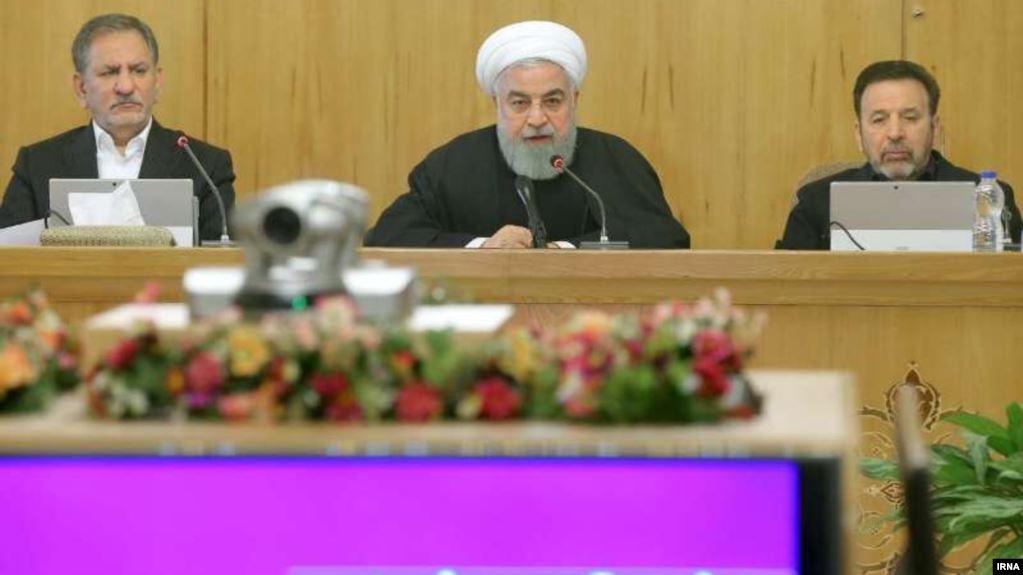
The Iranian President Hassan Rouhani says if European countries stop their own measures including what they did in Gibraltar, they will receive the proper response from Iran, implying that the British oil tanker seized in the Gulf was in retaliation for Iran’s supertanker being seized by Britain in Gibraltar.
The IRGC detained a U.K. flagged ship in the Strait of Hormuz, accusing it of breaching international maritime laws. Iranian officials including the speaker of parliament Ali Larijani welcomed this retaliatory measure against Britain’s seizure of Iran’s supertanker in Gibraltar for carrying oil to Syria.
Rouhani praised the IRGC for its “courageous measure” in detaining the British oil tanker, urging that the “whole world must thank the IRGC for the security in the Gulf.”
According to the Daily Telegraph, the British government, following the detention of a U.K. flagged oil tanker by Iran, intends to impose economic sanctions on Iran. Possible sanctions might include freezing financial assets belonging to Iranian officials. London might ask the European Union and the United Nations to re-impose sanctions that were removed after the nuclear deal with Tehran in 2015.
Officials from France, Germany, and some other European countries have expressed their deep concern over Iran’s measure, asking for the immediate release of the British oil tanker.
In a statement, NATO, too, condemned the detention of the U.K oil tanker by Iran, calling it a violation of free international shipping laws. For the first time since the beginning of the escalation of tensions in the Gulf, NATO warned Iran, asking for the immediate release of the detained ship and its crew.
By detaining the U.K. flagged oil tanker, Iran has escalated tensions in the region.
Radio Farda
RFI
Khamenei’s military advisor warns against a military conflict in the Gulf
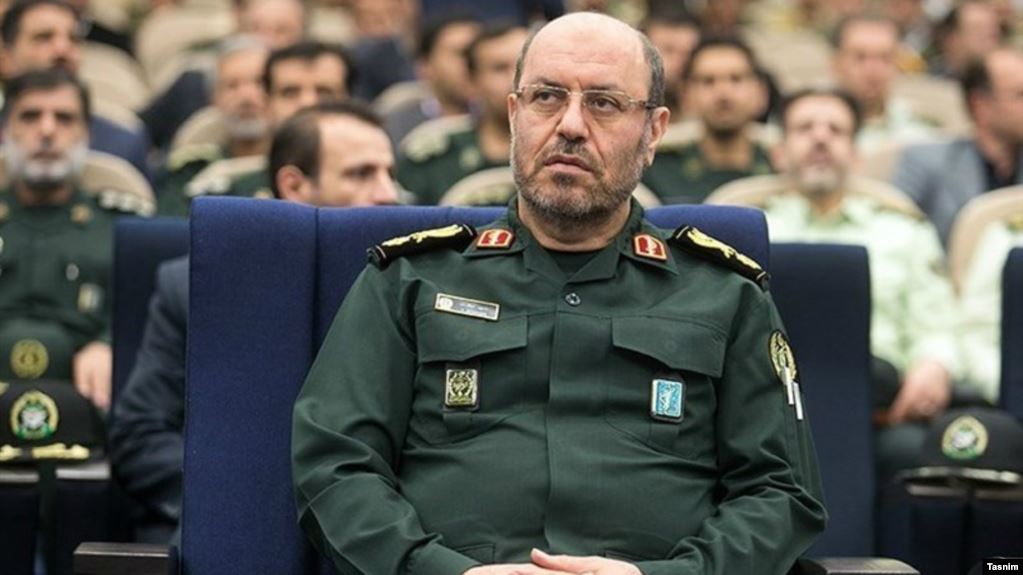
One of the military advisors of Iran’s Supreme Leader pointed to Britain’s proposal to form a European fleet to protect shipping in the Gulf, warning that any changes in the Strait of Hormuz can culminate in a “dangerous confrontation”.
Hossein Dehghan, Military Advisor to Iran’s Supreme Leader Ali Khamenei, reiterated the position of Iran’s officials, urging that Iran will not negotiate with the United States under any circumstances. He added that if Washington decides to go to war with Iran, all U.S. bases in the region will be attacked by Iranian forces.
Regional equations have become more complicated with the IRGC detaining a British oil tanker, which took place after an Iranian supertanker was seized in Gibraltar.
After the detention of the U.K. oil tanker by the IRGC, Britain has asked for the formation of a coalition by European countries to guarantee the security of shipping in the Gulf. Britain’s Foreign Minister Jeremy Hunt called the seizure of the tanker “state piracy”, stressing that a navy fleet is needed to protect shipping in the Strait of Hormuz. On the other hand, the United States that has imposed heavy sanctions on Iran to grind its oil exports to zero is also trying to form a global coalition to protect shipping in the Gulf.
The U.S. administration pulled out of the nuclear deal with Iran last year, calling for another deal that would include Iran’s missile program. However, Dehghan emphasized that Iran will not negotiate with anyone over its missile program.
Radio Farda
Deutche Welle
The Iranian government’s one billion euros “disappear”;
financial corruption in the Health Ministry
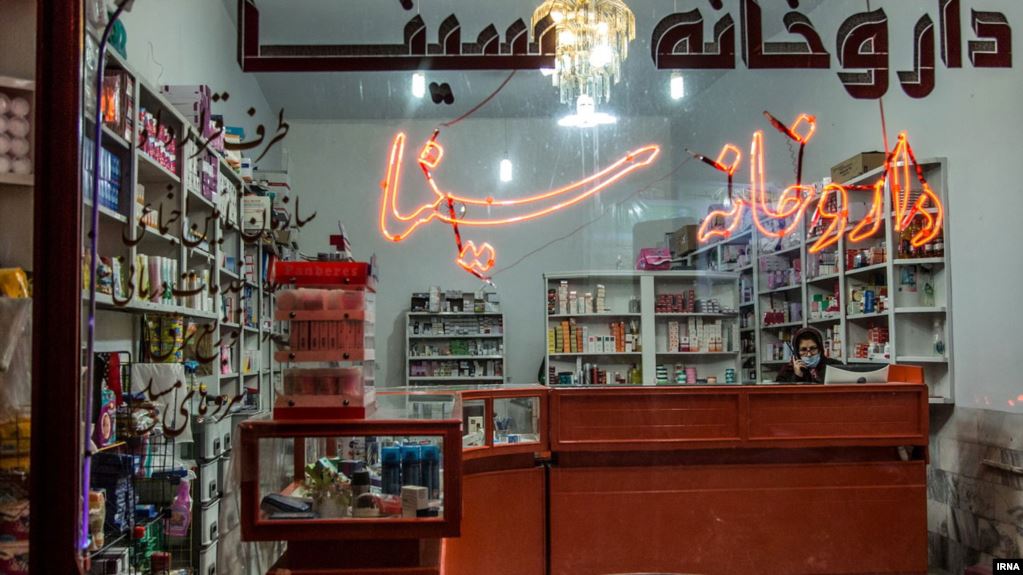
One billion euros which belonged to Iran’s government and was allocated for importing medications and essential goods has “disappeared”, according to the chief of staff of Iran’s president.
Mahmoud Vaezi, President Hassan Rouhani’s chief of staff, in a letter to the Ministers of Industry, Agriculture and Health asked for an explanation in this regard.
Based on a report by Shargh daily, Vaezi in his letter referred to nearly 849 million euros dedicated to importing “essential goods” and 130 million euros for medications.
Vaezi accused 20 companies of not importing to the country what they had legally promised to do, while asking the Central Bank of Iran to introduce those who received euros to the Suspending Organization of Iran that is in charge of investigating violations by government officials.
Prior to that, the Iranian Health Minister Saeed Namaki had announced that a number of the Ministry’s employees were arrested on charges of committing violations in importing medicines and medical equipment. He added that some importers had received two million euros for importing heart stents, but have imported power cables instead.
An official at the Food and Drug Administration of Iran has said those who imported power cables instead of heart stents to Iran have fled the country.
Last year, after a sudden unprecedented increase in the price of foreign currency in Iran, government officials allocated government currency for importing certain essential goods to stop the impact of the soaring price of the currency on other products.
Since then, there have been numerous reports regarding importers taking advantage of the received government currency; some importers have been accused of selling the goods imported with government currency in the free market at higher prices.
Also, it has been reported that a number of importers of necessary goods have received the currency at a price set by the government (dollar at 4200) and sold it directly in the free market.
Radio Farda
Election and “reformists’” indecision
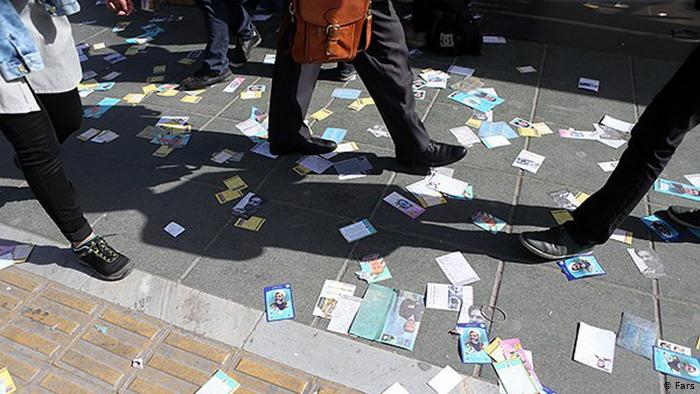
Iranian “reformists” do not deny the fact that society has no motivation for participating in the upcoming election, and they themselves have not made their final decisions as to their presence in the parliamentarian election. Meanwhile, the former President Mohammad Khatami has called for people to participate in the upcoming election in order to stop the danger of a possible war with America.
Khatami has asked “reformists”, as well as those who are dissatisfied, to go to the ballot boxes. He played a remarkable role in the victory of Hassan Rouhani in the 2013 and 2017 presidential elections. Khatami himself admitted in 2019 that these victories have not resulted in any “real reforms.”
Ali Shakoorirad, Secretary General of the “Unity of Nation” party said: “ the People’s condition is much worse than 2017. People say we should wait and see what will happen, which is the most miserable thing to say, because it means that people are waiting to see what the foreign forces or subversive forces inside the country will do. No one asks the parties what they plan to do, because people have come to believe that they no longer have power.”
This political “reformist” activist argued that as people have not seen the results of their participation in the last three elections, they don’t see any benefit in participating in elections any longer.
Azar Mansouri, a member of the “reformists’” supreme policy-making council, admitted that the people’s relationship with the ballot box has been destroyed because they see no change in the judicial system; and there are still problems in foreign policy and in the economy. People are still being arrested, and they are still facing problems over their lifestyle issues.
Meanwhile, Ahmad Alamolhoda, a “hardline” member of the Experts Council and a representative of the supreme leader in Khorasan Razavi, had a meeting with the Guardian Council, asking it to be careful in order to prevent “infiltrators” qualifying for the upcoming election.
The Guardian Council is in charge of filtering candidates for elections in Iran, disqualifying those who are not in line with the Iranian regime.
Deutche Welle
Radio Zamaneh
17 individuals arrested on charges of ‘espionage for the U.S.’
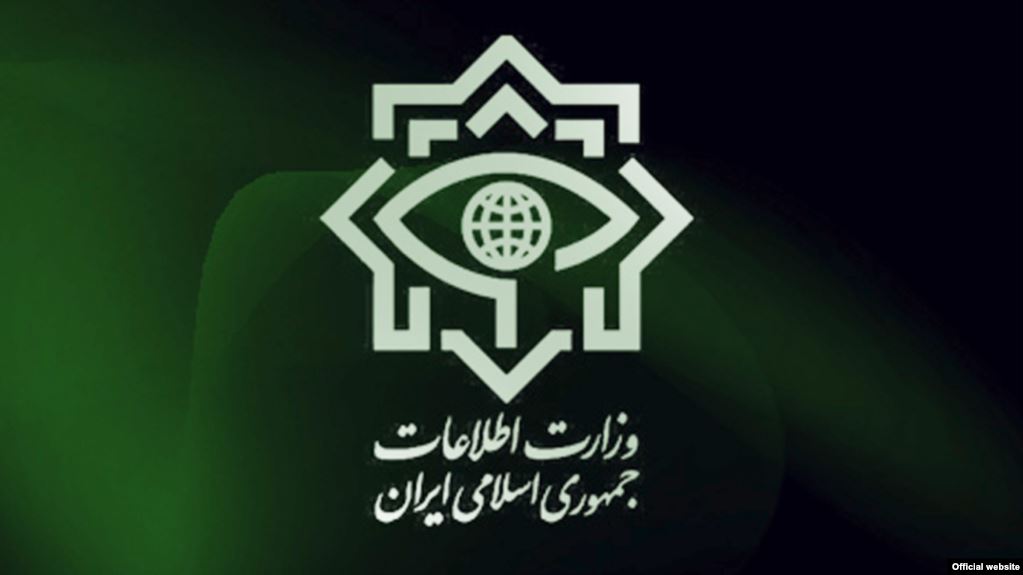
Iran’s Intelligence Ministry announced that 17 individuals have been arrested on charges of “espionage for the CIA” and some of them have been sentenced to death.
The Intelligence Ministry’s counterespionage department deputy said it had “successfully dismantled an espionage network which was connected to the US Central Intelligence Agency.” According to the same report, some of those individuals are to be executed as “corruptors on earth.”
The manager of the Intelligence Ministry’s counterespionage department – whose name was not mentioned – pointed out that those individuals “worked in cells” in Iran and had no relations with each other.
He added the defendants were employees of “sensitive centers” in the country, including economic, nuclear, military and cyber centers. They also worked as contractors or consultants for private sector companies related to those centers, he asserted.
The manager of the Intelligence Ministry’s counterespionage department also contended that the arrested individuals were mostly scientists and academics, not government officials. Without offering any pieces of evidence, he continued that the CIA agents “with diplomatic titles” had approached the defendants on the sidelines of scientific conferences in European, African and Asian countries.
Iranian state-run TV, in a documentary called “Hunting Spies”broadcast “confessions” made by these individuals, claiming that they had had meetings with American intelligence officers in Thailand, Dubai, the Republic of Azerbaijan, and Afghanistan.
The U.S. President Trump denied Iran’s claim, calling it totally false, and the Secretary of State Mike Pompeo, without confirming or denying it, said that he couldn’t comment on this particular issue, but added that he very much doubts anything Iran says.
Radio Farda
BBC Persian
